- Home
- Sarah Pinborough
Murder Page 2
Murder Read online
Page 2
My grip tightened on my brandy glass. We rarely talked of the torso murders. For Andrews they had always been secondary to Jack’s, and I was glad of that. For the first few years after those terrible events my sleep had suffered. I kept the memories locked away in my soul and I weaned myself from the laudanum, but often my days were wrecked with tiredness. I had not seen either the priest or Aaron Kosminski since that fateful night in Harrington’s warehouse. I had slowly managed to convince myself that the drugs had induced a kind of madness in us, but still I felt an awful sense of dread when walking the streets of London.
But for the past eighteen months or so that too had lifted and the whole affair had begun to feel like a terrible dream. I had no doubt that Harrington was the killer, and so I felt no overwhelming guilt over his death, but neither did I like any reminder of those events for fear that once again my anxieties and insomnia would return.
‘It’s possible,’ Moore agreed, but I sensed more for Andrews’ benefit than because he truly thought so.
‘We should dwell less on the past,’ I said. ‘If the case is no longer active, then perhaps we too should let it rest. And ourselves as well.’
‘I’ll drink to that,’ Moore said and signalled the waiter for more brandy.
*
It was late when I returned home to Westminster, but I had the pleasant buzz of having spent an evening with friends and before bed I went to my study to write a few more notes on my paper on the nature and treatment of hunting injuries. I wanted to push any dregs of thoughts of Jack and the torso killer to one side with practical work and I found it was not too difficult in the comfort of my own home. The sense of being haunted had truly left me, and although I had moments of fear that it would return, with every day that passed I relaxed a little more and allowed myself to feel content in my life. There would be no more opium. There would be no more madness. The priest and Kosminski were merely figures from a dream. They were not tangible, and as such, they could no longer affect me. Justice was done – even if it had been a crude version that I could never share with Andrews and Moore – and I refused to feel guilt for my part in it. It was far kinder for Juliana than any trial would have been, and I had no doubt whatsoever the outcome would have been the same.
Finally, I turned out the lamps and climbed the stairs to the bed I no longer dreaded. Yes, I thought as I slipped into an easy sleep, life was good at last.
3
Colney Hatch Lunatic Asylum. March, 1891
Aaron Kosminski
Medical Report on Admission:
He goes about the streets and picks up bits of bread from the gutter and eats them. He drinks water from a standpipe and refuses food at the hands of others, he is very dirty and will not be washed.
Patient believes he is guided and controlled by an instinct that informs his mind.
4
London. Christmas, 1896
Dr Bond
I stayed at Juliana’s on Christmas Eve, and after little James had been put to bed I helped her with the last of the present-wrapping and then we filled the stocking that hung from the edge of the mantelpiece before sipping sherry and allowing the enjoyment of the festive season to seep into us.
‘The calm before the storm.’ She smiled, raising her glass to me. ‘Merry Christmas, Thomas.’
‘And a Merry Christmas to you too, Juliana.’
We sat back, enjoying the silence in that particular way that two people who had grown used to each other’s company could do. I was glad to see her looking healthier and more content. Her happiness made me happy, and even with the secret that I kept buried, I still dared to hope that one day she might consider me more than just a friend. Although I was now a man in my fifties and she not quite reached thirty, still I wanted to look after her. Even without my impossible feelings of love for her, I knew I owed her that.
She had stopped wearing widow’s weeds – reluctantly, but with a pragmatism that I was beginning to see was a part of her core – a few years earlier, but her grief still clung to her, almost as corporeal as the monster my madness had convinced me was attached to Harrington’s back. Nothing in that time had been easy for her: her husband’s bloated body had been dragged from the river a few days after his death and she, insisting on seeing him even though both her father and I strongly advised against it, had been heart-broken at the sight. Her pregnancy continued to make her sick, and her labour had been long and difficult – for a while, though we never told her, there were times when we feared we would lose both her and the child. And after that, she never regained the full bloom of health: though her red hair was still beautiful, it had lost its lustre, and her face had thinned. Much as I tried to encourage her back out into the fresh air, even suggesting she join me at the hunt as she had been used to, she always declined, and for the first year or so of little James’ life, she was little more than a ghost of her former self. Once she left her sickbed she moved and talked and walked, but her heart had gone in the river with her dead husband, and I rather felt that if her sickly child were to die too, it would be only a matter of days before she threw herself into the water as well.
But little James did not die, and Juliana slowly came back to us – perhaps not with the joie de vivre that had been so much a part of her before, but she was still a young woman and I hoped that Time, Mother Nature’s healer, would rectify that. The young were resilient, and Juliana was an exceptional woman. I knew I was right in my decision: that it would be better she had to bear only the grief of a husband robbed and murdered rather than the truth of what James Harrington had become: a brutal murderer of women and the killer of his own unborn child.
Juliana remained in the Chelsea house only until both she and the boy had recovered enough from the trauma of his birth, then her parents and I encouraged her to sell the property and move, though I confess it was not difficult – she needed no persuasion from us, for that house held few happy memories for her. Selfishly, I too was happy that I would no longer have to visit that street, for not only had Harrington’s parents died so horribly there, but the ghost of Elizabeth Jackson lingered too, every time my gaze fell on the nearby house where she had been employed.
When Juliana moved into the new house in Barnes, the dark clouds I had carried with me everywhere began to lift. And as Juliana recovered, so did I.
Now, as the fire died down, her pale face was beautiful, lit by the glowing embers. When she had married James Harrington she had been a girl, but now she had grown into a woman and her face bore the marks of her suffering. I found that made her more perfect, if that were even possible.
‘I think I shall go to bed,’ she said at last, rising. ‘Thank you for coming tonight, Thomas. It’s been good to have some time alone before our guests arrive tomorrow.’ She leaned over my chair and kissed me softly on my cheek. ‘You are always so very kind to me. Sometimes I wonder what I would do without you.’
‘You will never have to do without me,’ I answered, ‘that I can promise you.’
She smiled again, a wistful expression that made me hope one day to see her eyes twinkle with good humour as they had before. And although I dared not think it too often, perhaps she would one day start to love me as I loved her …
‘I think I might read for a while,’ I said. ‘Sleep well. And Merry Christmas.’
As I watched her leave the room, her skirts swishing as she walked, I thought I had never known such a woman, and never would again. I didn’t read, but instead lost myself in the remains of the fire until it had burnt down to a pale glow. As the air turned chilly, I too retired to my bedroom, seeking a good night’s sleep before the Christmas festivities. Thankfully, that was no longer an idle wish.
*
The mood in the morning was as fine as in any house in London, and once Charles Hebbert, Juliana’s father, had arrived we left the cook preparing our feast and went to church before strolling back along the riverside to Juliana’s house on The Terrace. It had been a mild month, and for all the
slight crispness to the air it could as easily have been a March day as a December one. Juliana relaxed her normal over-protectiveness a little and she let James run ahead of us slightly, although she watched carefully as he peered over the bank to the river a few feet below us.
‘He’s starting to look just like his father,’ Charles said, adding with a smile, ‘and he seems well.’
From under his hat, blond curls sprang around the child’s face and for once his pale cheeks were glowing from both excitement and the fresh air.
‘He’s got Mother’s eyes,’ Juliana said, and squeezed her father’s arm. Mary Hebbert had been taken from them two summers before, the victim of a sudden fever. It was a swift death as her heart gave out, and although they had both grieved deeply, that had gradually transformed into fond remembrances rather than bouts of anguish. ‘And he is gentle, like her.’
‘And clever like his own mother,’ Charles added, his eyes twinkling. ‘A fine combination.’
I did not join in with their talk of the boy, for whatever I said would sound stilted and awkward. Instead, I hung back a few paces and let them continue. I had never been able to bond with little James. The similarities with his father and the memories he engendered in Juliana comforted her, but for me they were darker triggers. James had his father’s weak chest, and he had nearly killed Juliana arriving into this world; even throughout her pregnancy he had made her terribly ill, and I could not help but wonder if some of his father’s wickedness had passed into his unborn son. More than anything I loathed the child’s fascination with the river. Juliana refused to let him on the water, despite their waterfront property – I wondered how she could bear to look out at the Thames, knowing that her husband had been pulled out of it, but I supposed in some way it allowed her to feel closer to him. For my own part I still could not look upon the river without a mild sense of dread.
‘He’s nearly six. He should be in school,’ I heard Charles say, ‘and mixing with boys his own age. It would be good for his chest to spend more time playing sports, and good for him to be around others.’
‘I prefer to school him myself,’ Juliana said, her tone abrupt, ‘until I know he is completely well.’
Charles, to his credit, did not push her. It was Christmas Day and not the time to broach her controlling parenting.
‘Look, Mother! Look!’ The boy was pointing out to a flurry of gulls wheeling and diving into the water.
‘Don’t lean over too far!’ Juliana hurried forward, and Charles and I followed.
‘But look!’
As their beaks nipped eagerly, the volume of gulls made the water foam and churn, but at their centre I could just make out a dark hunk of something being tugged this way and that.
‘It’s a dead thing!’ James squealed excitedly. ‘They’re eating a dead thing!’
We turned away from the water after that.
*
Walter Andrews arrived in time for Christmas dinner, laden with parcels and a bottle of fine port, and by the time we had all eaten our fill and little James was playing with his new toys we were truly a festive gathering. Crackers had been pulled and nuts had been cracked, and then Juliana played the piano and we sang carols. Outside, as if in a fine salute to the day, the temperature dropped and the first snowflakes of the winter began to fall. I could not have wished for a more perfect Christmas.
‘Say goodnight to Uncle Thomas and Inspector Andrews,’ Juliana said, ushering the sleepy child towards us. ‘And thank them for their presents.’
‘Just Mr Andrews these days,’ Walter said, ruffling the boy’s angelic curls. ‘Good night, young Master James.’
‘Thank you for the cricket bat,’ the boy murmured.
‘We shall have you at the crease come summer.’ Andrews winked at him.
Little James turned to me and came in closer to where I sat so he could wrap his thin arms around me in a hug.
‘Merry Christmas, Uncle Thomas,’ he said. I returned the embrace, but I felt stiff and awkward. I tried to like the boy, I truly did. It was not that he was an unpleasant child – that was not the case. He was quieter than most boys of his age, and somewhat reserved and clingy with his mother, but he was not spiteful, nor mean. It was merely that he was the child of a monster, conceived at the height of his father’s murdering madness, and I could not help but wonder whether the sins of his father somehow lurked in his soul. And when those wide blue eyes were fixed on me, studious and sombre, I found I could not help but believe it.
‘Thank you for my books. And my train.’ He kept his arms round my neck and kissed my cheek, and knowing that Juliana was watching with fondness I patted his back and forced a smile, though I could not bring myself to return the kiss.
‘You’re very welcome, young man,’ I said instead. He pulled back and stared at me for a moment, then returned to his mother’s side.
‘I shall come and read you one of those new stories with your mother,’ Charles said as he got up from his seat. ‘How would you like that?’
‘Thank you, Grandfather,’ he said politely as Charles swept him up in his arms and groaned as if the slight boy was far too much weight. He pretended to stagger slightly under the load and little James laughed, a gentle giggle, and I felt a moment of sadness at my inability to like him.
‘Goodnight, Uncle Thomas,’ he said again.
‘We’ll be down shortly,’ Juliana said and smiled at me. ‘Now come along, both of you.’
When we were alone, Andrews poured me another glass of port and then added some coal to the fire before we went to the window and looked out at the snow and the gaslights flickering in the houses along the curved street. I thought of all the families who had decorated their trees and opened their presents and I hoped they had enjoyed as happy a day as we had.
‘The boy is very fond of you,’ Andrews said. ‘I think he wanted you to read his story to him rather than Charles.’
‘Oh, I think not.’ I was surprised by his words – the child was as awkward with me as I was with him, and I had presumed that was apparent to all.
‘You’re the closest person to a father he has.’ Andrews sipped his port. In a house further up someone drew the curtains closed. Christmas was coming to an end for another year, which made me think of the speed of my own passing years; the Yule season would be here again quickly enough.
‘You’re not getting any younger,’ Andrews said, as if reading my mind. ‘When are you going to pull yourself together and propose to her?’
Heat burned in my cheeks. It was true that I often talked of Juliana to Walter during our dinners, but I had never mentioned my feelings for her. I thought I had spoken like a guardian would, rather than a man in love.
‘Oh come on, Thomas.’
I busied myself with closing the drapes rather than face the gentle humour in his eyes. ‘It’s clear that you are both very fond of each other.’
‘I’m nearly thirty years older than her,’ I said, hoping my tone was indignant, but when I heard my oft-thought words spoken aloud I felt some shame that I had ever even considered that she might think of me and marriage. It was ridiculous. ‘I’m older than Charles,’ I added.
‘Age is irrelevant in these matters.’ He sat by the fire, where the flames were crackling merrily. ‘And Juliana is wise beyond her years. Her illness and her grief have matured her.’
I wished he would be quiet, but at the same time I found some hope in his words. If a man like Walter Andrews didn’t find the idea entirely preposterous, then perhaps I would one day find the bravery to say out loud the words I had so often voiced silently.
‘You’ve helped her through all of it – and her affection for you is obvious. You were close friends before poor Harrington’s murder, and you have been resolutely by her side since. If she were to marry again, who else would she choose?’
‘She still grieves for her husband,’ I said softly. I did not think of the headless baby’s corpse in Harrington’s trunk. I did not think of the glass i
n my hand gouging his throat.
‘She grieves less with each month that passes. Life is short, Thomas. Harrington is gone, Charles’ Mary is gone. My own Amy is gone. If you have the opportunity for happiness then you should at the very least try to take it.’
‘Perhaps I shall,’ I said. ‘Perhaps I shall.’ I smiled at him. ‘You should have just written that down as a Christmas gift for me and saved yourself the cost of those expensive riding boots.’
‘You’re right,’ he declared, reaching once again for the port bottle. ‘I shall return them tomorrow.’
‘Ah, but you did not write it down.’ I held my glass out to him. ‘The boots remain mine.’
By the time Juliana and Charles returned we were laughing, and soon Juliana was too. It was a good sound, and there had not been enough of it in recent years. Perhaps things were changing for all of us. I looked at her and felt my fierce love tighten my heart. Maybe this year, I thought. Let Christmas be over and the new year start properly. Maybe then I’d ask her.
5
Extract from letter from James Harrington to Edward Kane, dated 1888
… my secretary, James Barker (a rather earnest man who my father trusted implicitly with his business dealings, and I am, when my mind is my own, of a mind to agree with his judgement), seemed confused by my suggestion and then told me that I alone had the key to that warehouse and that I had told him specifically that it was not to be used. As soon as he spoke the memory of it came back to me, but I could not place why I would have said such a thing. Of course I made light of it, but I admit it plagues me. I can find no record of what I am storing there, and the windows have been painted black.
I have hours missing. My nights are sometimes a blur, and it is always when I’m weak with this terrible fever that fills me with dread. I start by working late, going through my father’s paperwork to understand the systems he has in place, but then there are black spaces, and fragmented images I do not want to dwell on, and I wake – if that is the right word, for I am far from sleeping during these episodes – in places where I have no right to be at.

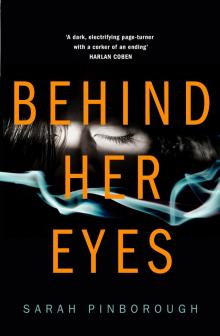 Behind Her Eyes
Behind Her Eyes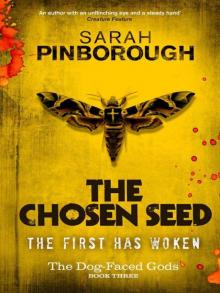 The Chosen Seed: The Dog-Faced Gods Book Three
The Chosen Seed: The Dog-Faced Gods Book Three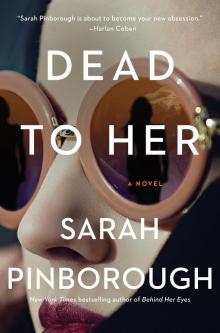 Dead to Her
Dead to Her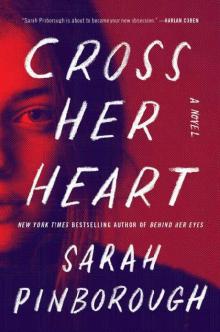 Cross Her Heart: A Novel
Cross Her Heart: A Novel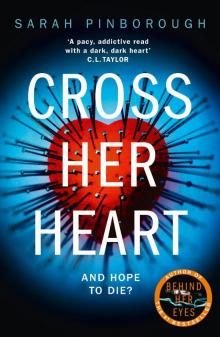 Cross Her Heart
Cross Her Heart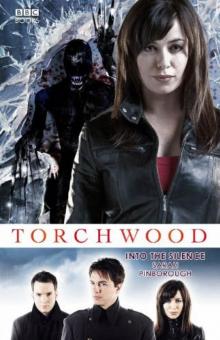 Into The Silence
Into The Silence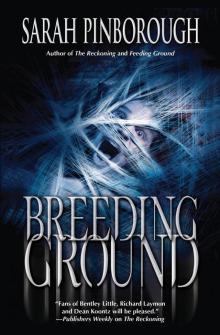 Breeding Ground
Breeding Ground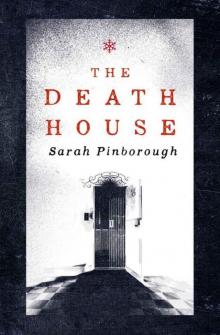 The Death House
The Death House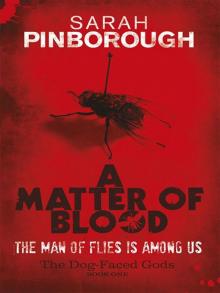 A Matter Of Blood (The Dog-Faced Gods Trilogy)
A Matter Of Blood (The Dog-Faced Gods Trilogy)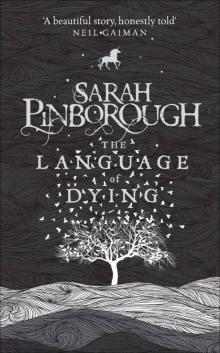 The Language of Dying
The Language of Dying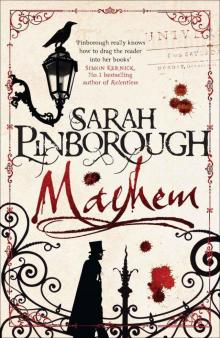 Mayhem
Mayhem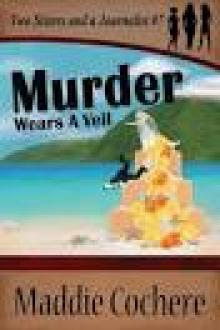 Murder
Murder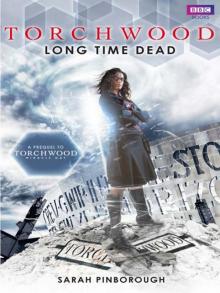 Torchwood_Long Time Dead
Torchwood_Long Time Dead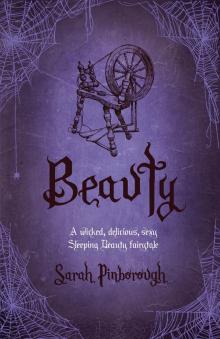 Beauty
Beauty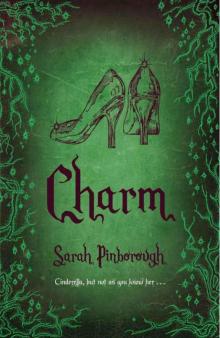 Charm
Charm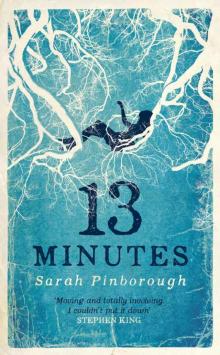 13 Minutes-9780575097407
13 Minutes-9780575097407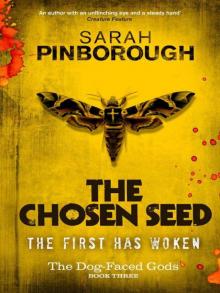 The Chosen Seed: The Dog-Faced Gods Book Three (DOG-FACED GODS TRILOGY)
The Chosen Seed: The Dog-Faced Gods Book Three (DOG-FACED GODS TRILOGY)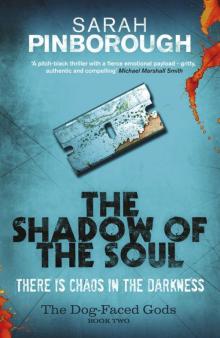 The Shadow of the Soul: The Dog-Faced Gods Book Two
The Shadow of the Soul: The Dog-Faced Gods Book Two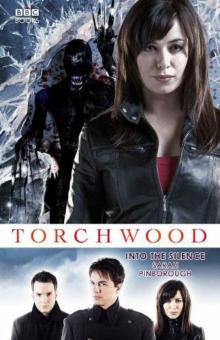 Into the Silence t-10
Into the Silence t-10